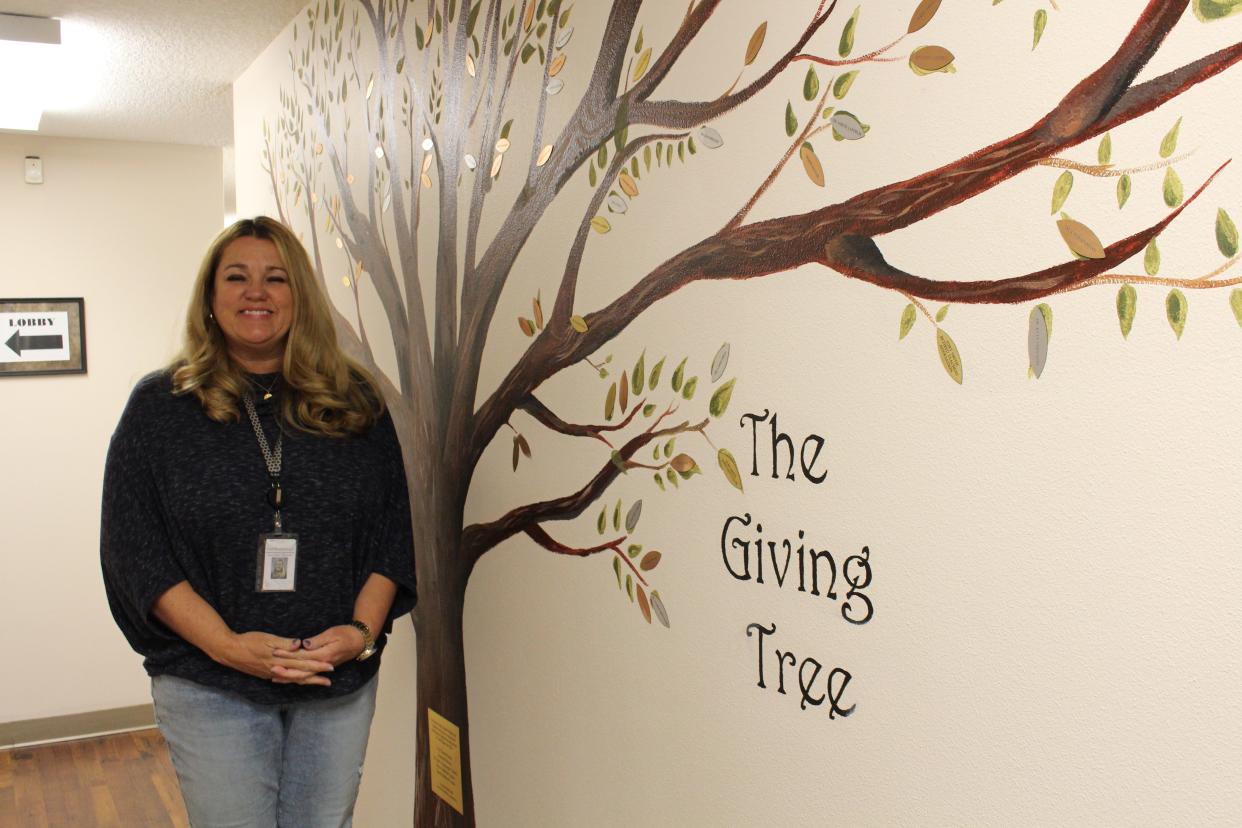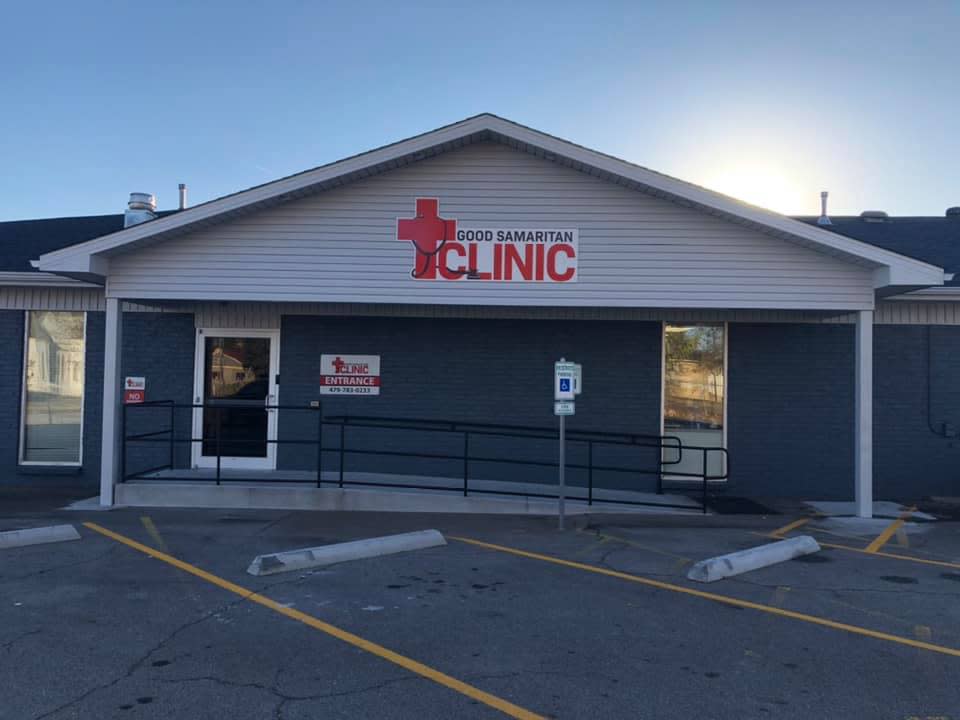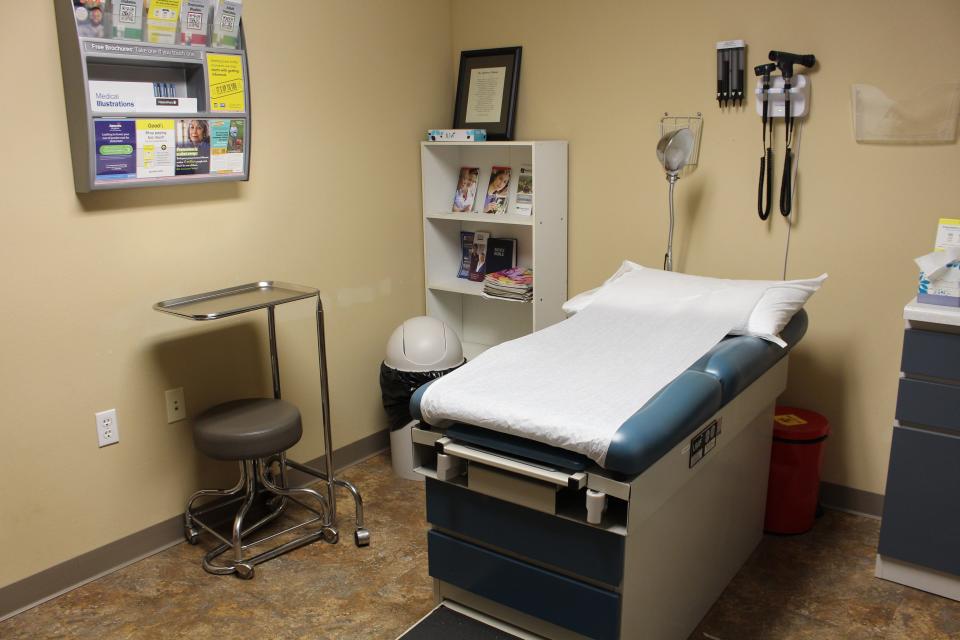A place of little miracles: Good Samaritan Clinic needs your help as the holidays approach

So much that is fundamental for good health can often be taken for granted – access to healthy foods, a safe, clean place to work out and especially affordable healthcare.
For the uninsured and underinsured in the Arkansas River Valley, the Good Samaritan Clinic stands in the gap to provide care.
"We’re 100% community-owned,” said Patti Kimbrough, executive director of the clinic. “We don’t get any state or federal money. We don’t take Medicaid or Medicare. We solely exist for the uninsured and underinsured.”
“Here at the clinic, no patient ever pays more than $35 and it’s been that way since 2003 when we opened our doors,” Kimbrough said. “… And if they don’t have it, no one is ever turned away for the inability to pay at all.”
The Good Samaritan Clinic originally began as a free weekly clinic at St. Paul’s Methodist Church. Under the leadership of Dr. Kemal Kutait, a retired family practitioner, and Ramona Roberts, a veteran real estate professional, the group transitioned into a formal clinic at its current location, a building owned by St. John’s Episcopal Church at 615 North B St., in 2003.
“It still gives me goosebumps today because … there’s many, many instances where you feel as though divine intervention had to have prevailed in order for the clinic to have survived for over 18 years as it has now, today,” Kimbrough said.

Continuing to serve
The coronavirus pandemic has not only impacted people’s mental and physical health but also increased health inequities, making it harder for some individuals and families to access care.
The disproportionate impact of the pandemic can be linked to social determinants of health, defined by the Centers for Disease Control and Prevention as including neighborhood and physical environment, health and healthcare, occupation and job conditions, income and wealth and education.
Barriers to healthy environments, jobs, higher incomes and other determinants can be compounded by “racism and associated chronic stress” which can “increase risks for poor health and health outcomes by limiting health promotion, disease and injury prevention, and condition management activities,” according to the CDC.
Healthcare costs, especially for the uninsured, often lead to worse health outcomes as people delay necessary treatment. In 2019, three in 10 uninsured adults “went without needed medical care due to cost,” according to the Kaiser Family Foundation.
“I am nervous this year … People are hurting,” Kimbrough said. “I see it every day in the clinic. I see the financial stress. I see the price of things going up, and I don’t see wages meeting that. We see a lot more people stressed and upset, and that worries me a little bit.”
The clinic has seen an increased number of patients, almost 6,200 this year, compared with an average of 5,000.
The pandemic has also led to increased expenses for the clinic including purchasing hands-free sanitizer dispensers, plexiglass for the reception desk, masks and additional cleaning supplies.
The Good Samaritan Clinic continues to provide wraparound support for patients ranging from traditional medical care, limited dental care, mental health services, vision services and assistance with prescriptions. Services are provided in both English and Spanish.
“Healthcare is broken, but I hope that the clinic is that little silver lining and little ray of hope for people that feel like they don’t have anywhere else to go,” Kimbrough said.
Compassion and respect
With donations, Kimbrough plans to expand vision and mental health services, along with continuing updates to the building.
Right now, the clinic provides vision services once a month, but “my ultimate [goal] is to have a vision day once a week,” Kimbrough said.
When looking at the effects of “financial instability, the lack of health care, chronic illness, all those things can really weigh on someone,” she said, in hopes of increasing mental health services, such as hiring a part-time counselor.
In June, the clinic earned the 2021 Gold Rating from the National Assocation of Free and Charitable Clinics Quality Standards Program.

Kimbrough showered praise on the clinic staff, volunteers and community partners including Baptist Health, Mercy, the Arkansas Colleges of Health Education, the University of Arkansas-Fort Smith, CURE and Western Arkansas Counseling and Guidance Center for their work.
A desire to always do better “is very much the spirit of the Good Samaritan Clinic, and the staff we have here, they see some of the people at their lowest points in life, but I think what they do is to make people feel so welcome and never, ever feel undignified,” she said. “They are treated with the utmost respect.”
A time of generosity
With its annual holiday fundraiser, the clinic seeks community support to continue its mission of “providing compassionate community care to our neighbors in need.”
“Shine The Light” gives donors the opportunity to support the Good Samaritan Clinic by giving a donation in honor of a loved one. With each donation, the clinic will send each person or family listed an acknowledgment card.
Reflecting on the impact of the clinic, Kimbrough shared the story of a man who donated what he had left each month in honor of his son who received life-saving treatment.
“It was just like the story in the Bible of the widow’s mite,” she said. “I still get teary-eyed thinking about it … and such an important story for this time of year … Still after so many years, still such a strong gratitude toward the clinic and what we do. It really is a place where just little miracles happen all the time.”
For those interested in taking part in the “Shine The Light” annual fundraiser, they can visit the clinic’s website at www.goodsamaritanfs.com or call 479-783-0233 to receive more information.
Catherine Nolte is a corps member with Report for America, a national service program that places journalists into local newsrooms. She can be reached at cnolte@swtimes.com. Southwest Times Record and Report for America are working to place a new generation of journalists in community news organizations across the country. Will you support this effort today?
This article originally appeared on Fort Smith Times Record: Support affordable healthcare in Fort Smith this holiday season

